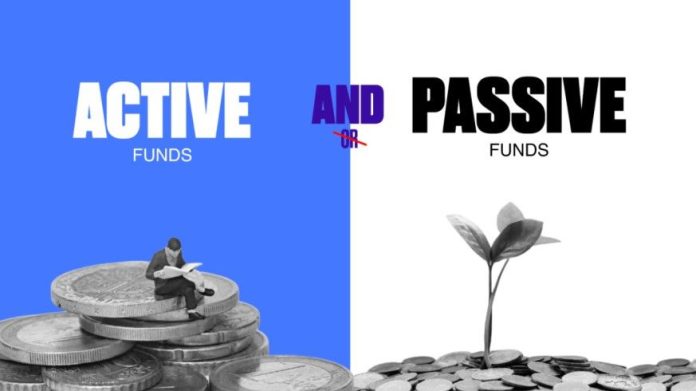Active Fund and Passive Fund: Most people who invest in mutual funds do not know about active and passive funds. Whether their portfolio is of lakhs or crores. Let’s know about this in detail…
Active Fund and Passive Fund: I was discussing with a colleague in the office, as soon as the topic of mutual funds came up, he said that we also invest in mutual funds. We have been investing for many years, we do separate SIPs in the name of everyone in the family. By the way, investing in mutual funds is also very easy today, open a demand account and start investing.
Do you also invest in mutual funds? It is possible that you have been investing for years, you must be getting returns too, which you must be happy to see. But if you are asked only this, in which fund do you invest – active fund or passive fund? Perhaps you will not have an answer, because you will not know about this. Never mind… Most people who invest in mutual funds also do not know about this. Whether their portfolio is of lakhs or crores.
Now the question arises that what is this active fund and passive fund? Why is it important for a common investor to know this?
In fact, in recent years, mutual funds have become increasingly popular. People are choosing the path of mutual funds in the desire of better returns… There are mainly two ways of mutual fund investment – Active Fund and Passive Fund.
What is Active Fund?
First of all, let’s talk about Active Fund. As the name suggests… Active means active. Active funds are managed by experts, here expert means fund manager. Strategy is made before investment. Fund managers regularly take decisions related to buying and selling.
If understood from an investor’s point of view, active funds are preferred because they are managed by industry experts. Where, in which stock to invest, from which stock to exit.
Features of Active Fund
Actually, in active mutual funds, better returns are expected than the index i.e. the market. Because it is operated by the fund manager. However, the fund manager charges the investor for this, so the expense ratio (cost) of an active fund is higher than that of a passive fund. Because a large panel of experts works behind the fund.
Also Read- NPS Vatsalya Vs PPF: If you want to become a millionaire soon then which scheme will be best, understand the complete calculation here
In simple words, the purpose of an active fund is to perform better than the market index. However, this is not guaranteed. Active funds can have better risk management than passive funds. Because the fund manager can understand the market changes quickly. However, this does not mean that they are risk free. Equity mutual funds, debt mutual funds, hybrid funds or fund of funds etc. come under the category of actively managed funds.
What is a passive fund?
Now let’s talk about passive funds… In the last few years, investment in passive mutual funds has been increasing continuously. Passive fund is also a means of investing in a mutual fund, which tracks the market index or a particular market segment. In a passive fund, the fund manager does not decide which companies will be in the fund. Investing in passive funds is easy. Passive fund investors do not need to research the best performing funds.
Pros and cons of passive funds
Let us tell you, an investor invests money in a passive fund when he wants his returns to be in line with the market. These funds are low-cost funds, because there is no cost involved in stock selection and research. New investors entering the market, especially the youth, prefer this type of fund more. The main reason for this is the good returns of passive funds. Passive funds track a benchmark index and try to imitate its performance.
It has less volatility than active funds. Index funds are considered better for those who do not have time to track the market well. Investors have to pay less expense ratio in passive funds as compared to active funds. For example, these are some passive funds – Index Fund, Exchange-Traded Fund (ETF). Apart from this, ETFs and index funds are available for many categories including gold, commodities, banks, healthcare.
Now let us tell you what is the difference between the two funds…
In active funds, the fund manager decides in which stocks of which sectors the money should be invested. On the other hand, passive funds invest in indices, such as 30 companies of Sensex or 50 companies of Nifty, in proportion to their weightage. In such a situation, the role of the fund manager in passive funds becomes very limited. Therefore, their management fees are also low. In recent years, the number of passive fund investors from small cities and towns (Tier 2) has increased a lot.
In such a situation, if you do not know about investing or have very little knowledge, then it will be right for you to invest in mutual funds through passive funds like ETFs and index funds. Passive funds are for such investors who want to take less risk. Also, it saves you from the hassle of choosing which fund to invest.
Related Articles-
Post office’s superhit scheme! You can earn 2 lakh rupees from interest alone, know calculation
How to apply for Kisan Credit Card: Know the documents and method of application






